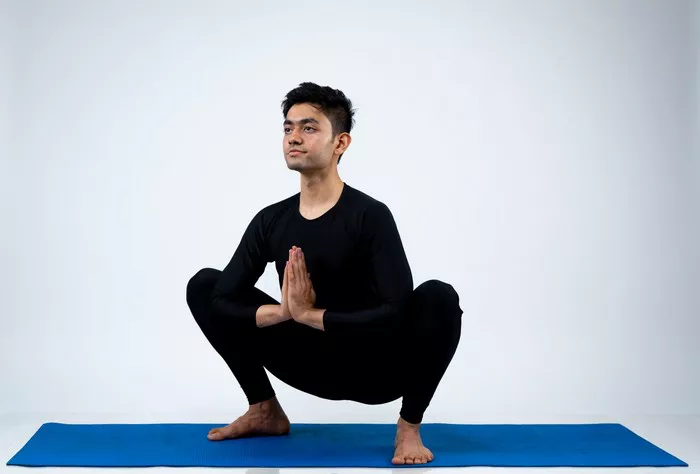In recent decades, yoga has gained significant popularity across the globe. What started as a spiritual and physical practice in ancient India has now become mainstream, with millions of people practicing it in various forms. Yoga classes are available everywhere, from gyms to community centers, and the health benefits are widely promoted. It is often associated with stress relief, increased flexibility, and better overall well-being. As a result, many Christians may feel curious about trying yoga or may already be practicing it without fully understanding its origins or implications. While the physical postures and stretches associated with yoga can be beneficial for the body, there are concerns about whether yoga aligns with the core values of Christianity.
For Christians, the question of whether yoga is compatible with their faith is not merely about physical exercise but also about the spiritual and philosophical aspects of the practice. Yoga is deeply rooted in Hinduism, and many of its postures and practices have spiritual meanings that conflict with Christian teachings. The practice of yoga often involves elements like meditation, chanting, and invoking Hindu deities, which may not align with the monotheistic belief in the Christian God. Additionally, the concept of self-realization in yoga — achieving enlightenment and unity with the universe — contrasts with the Christian focus on salvation through Jesus Christ. This article explores why many Christians believe yoga should be avoided, discussing both its spiritual origins and the potential risks it poses to a Christian worldview.
The Spiritual Origins of Yoga: A Conflict with Christian Beliefs
Yoga is not just a physical activity; it is also a spiritual practice with deep roots in Hinduism, Buddhism, and other Eastern religions. Its purpose is often described as achieving spiritual enlightenment, self-realization, or unity with a higher universal consciousness. The word “yoga” itself comes from the Sanskrit word “yuj,” meaning “to yoke” or “to unite,” implying a union of the individual with a divine or cosmic force. In traditional yoga, practitioners aim to align their mind, body, and spirit to achieve oneness with the divine — a concept that is foreign to Christian doctrine.
For Christians, the central belief is that salvation is found through faith in Jesus Christ alone, not through personal enlightenment or achieving oneness with the universe. The Bible teaches that humanity’s purpose is to glorify God and enjoy a relationship with Him, rather than seeking self-realization or enlightenment. In contrast, many yoga practices incorporate elements such as meditation, chanting, and visualizations that are intended to facilitate this union with the divine or the cosmos, which can be seen as contrary to the Christian concept of worshiping the one true God. Furthermore, some yoga philosophies promote ideas like pantheism (the belief that God is everything and everything is God), which stands in opposition to the Christian understanding of a personal, transcendent God who created the universe. Therefore, engaging in yoga with its inherent spiritual aims could be spiritually confusing or even idolatrous for Christians.
The Problem of Hindu Deities in Yoga Practice
One of the key concerns for Christians when it comes to yoga is its connection to Hindu deities. Many yoga practices incorporate the worship or veneration of various Hindu gods, such as Shiva, Vishnu, or Ganesha. Even if these deities are not directly invoked in every yoga class, the symbolic references to these gods are present in the practice. For example, some yoga poses are named after Hindu deities, and certain mantras (sacred chants) might be used during practice that invoke these gods or spiritual concepts tied to Hinduism. For Christians, participating in practices that are tied to the worship of other gods is clearly prohibited in the Bible, as it is considered a form of idolatry.
Exodus 20:3 says, “You shall have no other gods before me,” emphasizing the importance of worshiping the one true God. Many Christians believe that engaging in yoga, especially when it incorporates any form of invocation or alignment with Hindu deities, could be a form of spiritual compromise. The Bible also warns against practices that could open believers to spiritual influences outside of God’s will, and some see yoga as a pathway to spiritual danger. Even though modern yoga classes may be secular and focus on physical exercise alone, the roots of the practice still carry a significant spiritual baggage that could undermine a Christian’s relationship with God.
The Risk of Syncretism: Mixing Christianity with Eastern Practices
Syncretism refers to the blending or mixing of different religious beliefs and practices, often resulting in a watered-down version of both. Some Christians who practice yoga may believe that it can be separated from its spiritual origins and can be practiced purely for physical fitness, meditation, or relaxation. However, there is a significant risk of syncretism when elements of Eastern spirituality are introduced into a Christian’s life. A Christian might start by practicing yoga simply as a form of exercise, but over time, they could be drawn into the more spiritual aspects of yoga, such as meditation, chanting, or exploring Eastern philosophies that do not align with biblical teachings.
The Bible cautions against blending different belief systems in such a way that one’s faith becomes diluted. Jesus warned about the dangers of mixing the sacred with the profane (Matthew 6:24). The apostle Paul also addressed the issue of syncretism in 2 Corinthians 6:14-16, where he urged believers to avoid being yoked together with unbelievers. This idea of mixing practices from different religious traditions could lead to confusion, compromise, and ultimately a weakened commitment to Christ. For many Christians, engaging in yoga may represent an unwise and unnecessary risk of blending their faith with non-Christian spiritual practices that could compromise their devotion to God.
The Importance of Discernment in Christian Practices
Discernment is a vital skill for Christians, as they are called to carefully evaluate the practices and activities they engage in to ensure that they align with their faith. The Bible emphasizes the need for believers to be alert and wise, distinguishing between good and evil, truth and falsehood (Hebrews 5:14). For Christians considering yoga, it is important to ask questions about its purpose, its origins, and its potential impact on one’s spiritual life. Are the physical benefits worth the spiritual risks? Does the practice of yoga, even when stripped of its spiritual elements, still lead to a mindset or attitude that is contrary to Christian values? These are crucial questions that require careful thought and reflection.
Christians should not take these matters lightly. While yoga itself may seem harmless to some, it is essential to recognize that spiritual influences are not always immediately visible. Even seemingly innocent practices can have profound effects on one’s heart and mind. The Apostle Paul warned in 1 Thessalonians 5:21 to “test everything; hold fast what is good.” This is particularly important when it comes to practices that have deep spiritual roots in another religion. It is always best for Christians to prioritize their relationship with God and be vigilant in avoiding practices that might lead them away from the truth of the gospel.
See Also: Does Yoga Change Your Body?
Alternative Practices for Christians Seeking Physical and Mental Wellness
For those Christians who are drawn to the physical and mental benefits of yoga, there are alternative practices that align with biblical principles. For example, Christian fitness programs often incorporate physical movement and stretches without the spiritual components that are inherent in yoga. Christian meditation focuses on the Word of God and prayer rather than emptying the mind or seeking enlightenment. Activities like walking, swimming, or even Pilates can provide similar physical benefits without compromising one’s spiritual integrity.
Furthermore, Christians can find peace and relaxation through practices like contemplative prayer, which centers on God’s presence, or through worship that engages both the body and soul in honoring the Lord. There are many ways to care for the body and mind that do not involve practices rooted in non-Christian spiritual traditions. By choosing alternatives that are specifically designed to nurture both physical and spiritual well-being, Christians can remain faithful to their beliefs while still taking care of their health.
Conclusion
Ultimately, the decision to avoid or engage in yoga is a personal one for each Christian, but it is important to approach it with careful consideration of its spiritual origins and potential consequences. While yoga may seem like an innocuous form of exercise, its roots in Eastern spirituality raise significant concerns for many believers. The practice of yoga can inadvertently lead to spiritual confusion, idolatry, and syncretism, which are contrary to Christian teaching. By maintaining a strong commitment to biblical principles, Christians can choose practices that promote physical and mental health without compromising their faith. Christians should seek alternatives that honor God and align with the teachings of Scripture, protecting both their physical well-being and their spiritual integrity.
You Might Be Interested In


















